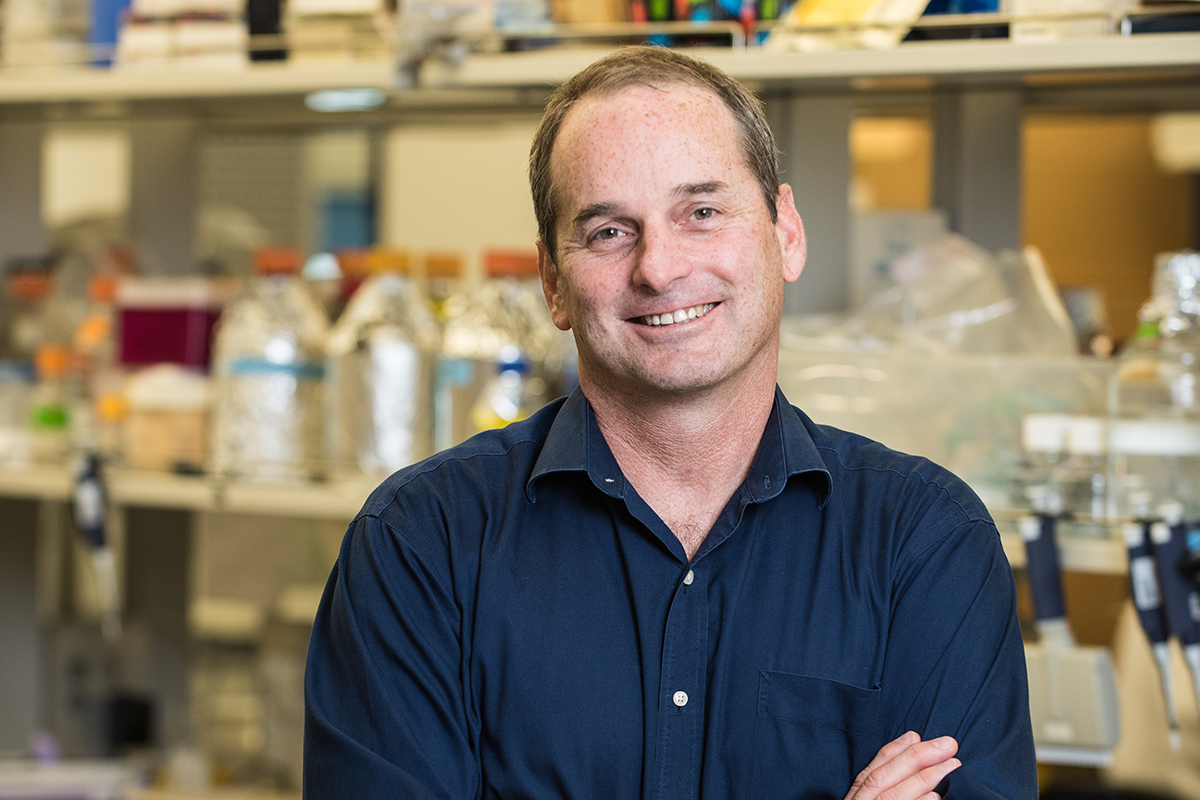Dr. John Aitchison Taps Systems Biology, Collaboration to Attack Infectious Diseases
 isbscience.org/news/2018/03/29/dr-john-aitchison-taps-systems-biology-collaboration-attack-infectious-diseases/
isbscience.org/news/2018/03/29/dr-john-aitchison-taps-systems-biology-collaboration-attack-infectious-diseases/
When the federal government shut down twice in early 2018, Dr. John Aitchison couldn’t stop thinking about malaria.
“The clinical trial we recently started would have been shuttered,” he warned. “If that malaria vaccine is effective and the trial is effective, and if the government shutdown lasted a month, there’s 100,000 people dead.”
Aitchison is a pioneer in the field of systems biology. He is a founding member of Institute for Systems Biology (ISB), he was the long-time director of the Center for Systems Biology, and now he serves as president and director of Center for Infectious Disease Research (CIDR).
His impressive career arc is rooted in cross-disciplinary science, and his sights are set firmly on understanding and attacking some of the most devastating diseases that ravage a huge portion of the global population.
“There’s an urgency in what we’re doing,” he said.
‘I left my country’
Born in Canada, Aitchison received his Ph.D. in biochemistry from McMaster University in Hamilton, Ontario, and worked as a postdoctoral fellow at The Rockefeller University in New York City under the guidance of the late Dr. Gunter Blobel (Nobel Laureate, 1999). He followed up his postdoc experience as an assistant professor at the University of Alberta, where he researched and taught cell biology.
In the 1990s, Canada was worried about a “brain drain,” and the University of Alberta’s vice president of research held Aitchison up as a poster child of the type of researcher the country should fight to keep. Alberta’s policymakers – including its minister of innovation and science – were willing to commit significant resources to implement the technologies of systems biology (even though the term “systems biology” hadn’t yet been created). “It became a pan-Alberta initiative,” Aitchison said.
But at the turn of the century, Aitchison’s attention was drawn to Seattle, where Drs. Lee Hood, Ruedi Aebersold and Alan Aderem were going their own and co-founding ISB. The three men had different areas of expertise – Hood in biotech, Aderem in immunology and Aebersold in technology – and they recruited Aitchison for his expertise, personality and willingness to collaborate.
“I gave up my grants in Canada. I left my country. I gave up my startup money,” Aitchison recalled. “I told my chair about the opportunity. He said, ‘If you don’t take this, I will lose a lot of respect for you scientifically and personally’.”
Aitchison made the jump, as did other founding members Drs. Timothy Galitski (yeast geneticist), Ger van den Engh (biophysicist) and George Lake (astrophysicist).
“We didn’t speak each other’s languages. It was like the Tower of Babel,” Aitchison said. “Scientifically, it was incredibly exciting – but challenging.”
Tearing down silos
ISB’s founding members were driven by systems biology, which by nature requires collaboration. They checked egos at the door, simplified the level of conversation, and rebuilt from there.
“I think that was magical,” Aitchison said. “During that rebuilding process, you begin to ask questions you never thought would be asked. Our questions came from a place of intelligence, but were naïve. Start from first principles, and do some amazing things.”
“John participated in the evolution of ISB over the past 17 years from a nascent organization to a quite mature organization,” said Hood, who was ISB’s president through 2017, and now serves as chief strategy officer of ISB, and is chief science officer and senior vice president of Providence St. Joseph Health. “He played an important role in bringing systems thinking to cell biology and in developing relevant technologies,” Hood said.
A critically important piece of the collaboration puzzle was the Center for Systems Biology, which was created to focus on projects that crossed broad areas of study. The center was one of 11 national systems-biology centers funded by the National Institute for General Medical Sciences, and provided resources for the integration of big science projects, the exploration of new scientific directions, the support of activities to create a systems biology-driven culture and the training of students at all levels.
“He was director of the center for six critical years when it served as an integrating force for science and technology at ISB,” Hood said. “The center provided the glue that really facilitated interactions and the evolution of a systems-driven culture.”
“We started funding percentages of peoples’ time to promote collaboration,” said Aitchison, who was co-principal investigator of the center when it started in 2006, and became director in 2011.
ISB received $30 million in funding for the center, which was in operation through the end of 2017.
Passionate about global health
Aitchison joined CIDR in 2011, where he first served as director of integrative biology, then chief science officer, and as of 2017, president and director.
Unsurprisingly, collaboration remains a major tool in Aitchison’s kit. He forged a deep relationship between ISB and CIDR that still exists today. Moreover, he knows systems biology is a platform that will cut across diseases and disciplines, and will be especially powerful for infectious disease research.
“John is uniquely qualified to lead CIDR and have it play a pioneering role bringing systems thinking to immunology, infectious diseases and global health problems such as HIV, malaria and tuberculosis,” said Hood.
Aitchison’s excitement and hope are palpable. “We’re all passionate about global health. We believe we’re doing something good.”
“Systems biology and P4 medicine in 2018 is primarily a first-world application. Still, 14 million people die of infectious diseases each year,” he said. “From a humanitarian perspective, we’re going to have a huge impact.
I dream about health equity around the world,” he said. “I want to take systems biology and apply it to diseases that are killing millions of kids.”





